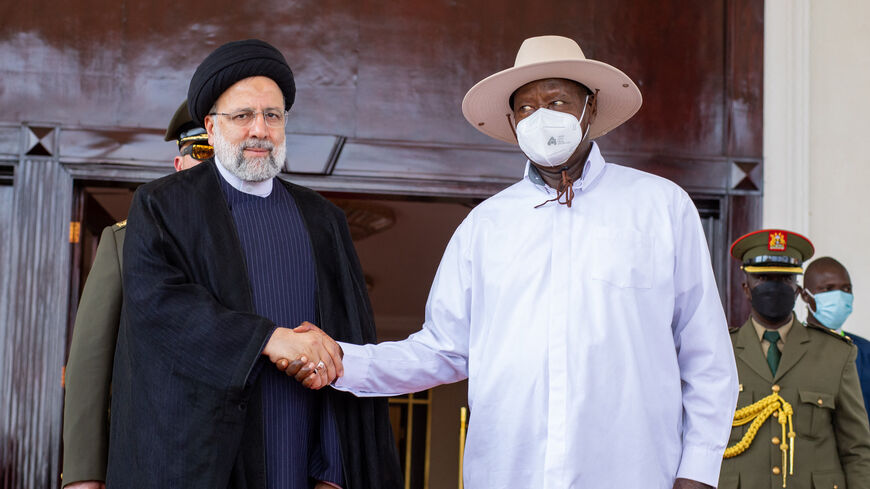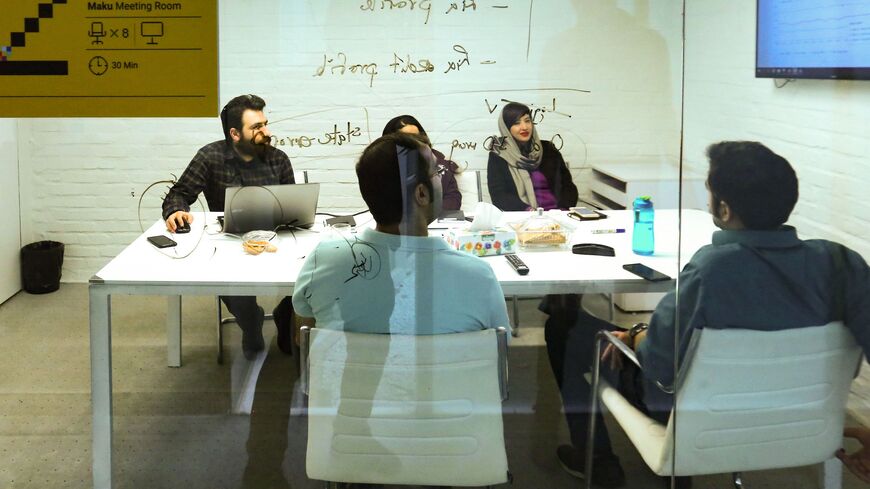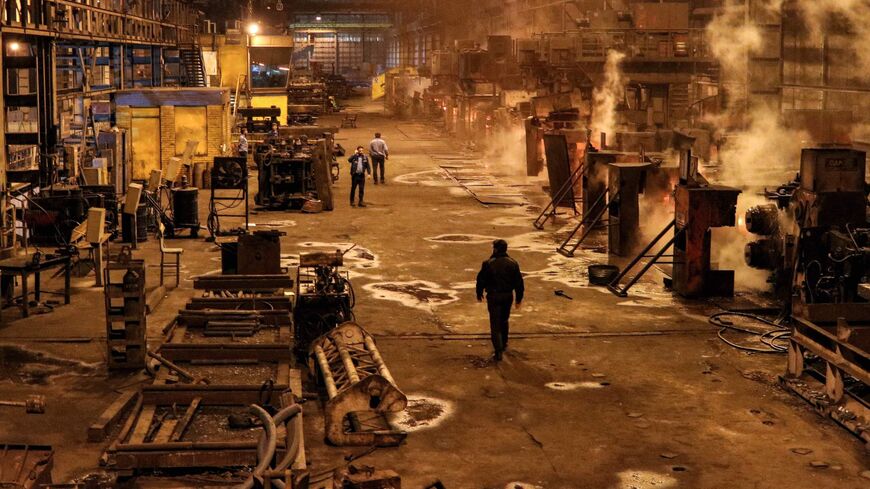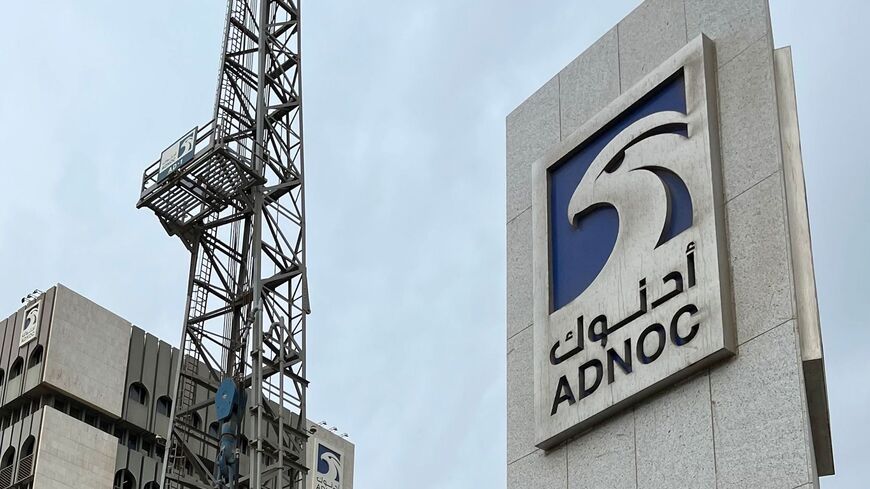Iran's automotive 'mega project' will have limited impact
Al-Monitor Pro Members
Dr. Bijan Khajehpour
Managing Partner, Eurasian Nexus Partners, Vienna, Austria
March 15, 2023
The Iranian government has set itself a plan to sell 500,000 passenger cars directly to end consumers in an effort to reduce market prices by limiting the influence of intermediaries. But the so-called "mega project" will have a limited impact on the deficiencies of the automotive market. As long as economic conditions remain unstable, manufacturers, traders and consumers will try to benefit from the unsaturated domestic marketplace and government intervention will only complicate matters.
- Iran has a sizable automotive market and in 2021 the country ranked 19th in the world with regard to automotive production. From an economic perspective, the sector is an important driver for job creation and domestic industrial capacity building.
- These facts also explain why the 2018 US policy of maximum pressure put restrictions on the country’s automotive sector.
- In fact, the brief lifting of sanctions in the aftermath of the JCPOA's implementation in 2016, paved the way for the industry to manufacture more than 1.5 million vehicles in 2018. However, production declined severely as a consequence of the maximum pressure sanctions, which indicates the high level of dependency on imported components despite local manufacturing capabilities.
- Tehran’s response to the US pressure was to put increased effort behind localizing the technologies needed to produce automotive components. According to key industry players, the country is now self-sufficient in the production of some parts, but has “a problem in supplying raw materials” which have to be imported. As such, increased domestic manufacturing of raw materials is the new priority.
- Domestically manufactured products are sold at unrealistically high prices due to an ever growing demand for passenger cars. Various comparisons show that Iranian-made vehicles are 10% to 20% more expensive than similar makes in European or Asian markets.
- In 2021, when President Ebrahim Raisi took office, his minister of industry, mining and trade, Reza Fatemi Amin, outlined a plan to increase the domestic capacity to 1.6 million vehicles in the Iranian year 1401 (ending on March 20, 2023). However, like many other plans in the Raisi administration, the reality looks different. By January 2023, total production stood at below 1 million cars.
- In light of the limitations in domestic production, the parliament has now passed a law allowing the family of companies around the Ministry of Defense to manufacture passenger cars and special vehicles. Incidentally, so far, the Islamic Revolutionary Guard Corps’ presence in the sector was mainly limited to its part ownership of the Bahman Group — a car manufacturing group that was originally the local manufacturer of the Japanese Mazda and later the Chinese FAW Group.
- The government has intensified its interventions to reduce the role of intermediaries. For example, manufacturers are tasked to offer a segment of their products to the market through the mercantile exchange, so that end consumers can secure their cars directly from the company. However, none of the interventionist policies have had much effect on the end consumer prices.
- Notably, in order to contain the price increase due to the imbalance between supply and demand, the government decided to approve imports of passenger vehicles through a controlled process which contains a preferential treatment of some target groups, such as war veterans, members of martyr families etc. For this purpose, a number of foreign vehicles have been approved by the government. The process starts with an online registration and an auction by authorities before the vehicles are delivered to the interested parties. So far, almost 120,000 applicants have signed up for the auction. According to official sources, 29 companies have been selected as import agents and the imported products will be offered on the mercantile exchange.
- Even though the intention is to increase supply and reduce the high prices in the market, various industry insiders have opined that such imported vehicles end up in the hands of dealers who have enormous control over market prices. They are referred to as the automotive sector mafia.
- In a new move to cut out the intermediaries and regulate the market, the government has introduced a new initiative to sell 500,000 domestically manufactured cars directly to the consumers. However, the implementation of this plan has already been delayed once and it is unclear when it will be introduced.
Scenario 1: The process will not be implemented at all.
The Raisi government has announced many so-called mega projects that have not been realized, such as the plan to build 4 million housing units for lower income classes or the promise to create one million jobs per year. So it is conceivable that this “mega project” will also be forgotten in due course. The government could argue that the sale of automotive products on the mercantile exchange would be cutting out the intermediaries and hence reducing the end consumer prices.
Scenario 2: The government will manage to balance supply and demand.
If implemented well, the process could put some downward pressure on the end consumer prices by genuinely limiting the scope for intermediaries. In order to achieve this objective, the government would have to pave the way for a non-governmental oversight — for example through the chamber of commerce — over the implementation, so that the influence of corrupt networks is limited and genuine end consumers will receive the products.
The most likely scenario is that the sale of 500,000 domestic vehicles will not have a major impact on the end consumer prices, but be mainly used for two other, economically important purposes: On the one side, the prepayment by consumers will help finance the future production of domestic cars. An approach that had been used before by individual companies and on a smaller scale. Taking an average price of $15,000 per vehicle and a 50% prepayment, the process will inject $3.75 billion into the sector and finance the operations of manufacturers. On the other side, the process will absorb some of the liquidity in the market that has contributed to the current inflationary environment. In short, once implemented, the project will have some positive impact, but not fulfill its main objective. Passenger car prices will remain high and profits in the industry will mainly flow into the pockets of corrupt networks and the so-called automotive industry mafia.
Bijan Khajehpour is the managing partner at Eurasian Nexus Partners - eunepa.com - a Vienna-based international consulting firm. He also sits on the board of the Europe Middle East Research Group. He is considered an expert on geopolitics of energy and the Iranian economy and energy sector.
We're glad you're interested in this memo.
Memos are one of several features available only to PRO Expert members. Become a member to read the full memos and get access to all exclusive PRO content.

Already a Member? Sign in
The Middle East's Best Newsletters
Join over 50,000 readers who access our journalists dedicated newsletters, covering the top political, security, business and tech issues across the region each week.
Delivered straight to your inbox.
Free
What's included:
Free newsletters available:
- The Takeaway & Week in Review
- Middle East Minute (AM)
- Daily Briefing (PM)
- Business & Tech Briefing
- Security Briefing
- Gulf Briefing
- Israel Briefing
- Palestine Briefing
- Turkey Briefing
- Iraq Briefing
Premium Membership
Join the Middle East's most notable experts for premium memos, trend reports, live video Q&A, and intimate in-person events, each detailing exclusive insights on business and geopolitical trends shaping the region.
$25.00 / month
billed annually
$31.00 / month
billed monthly
What's included:
Memos - premium analytical writing: actionable insights on markets and geopolitics.
Live Video Q&A - Hear from our top journalists and regional experts.
Special Events - Intimate in-person events with business & political VIPs.
Trend Reports - Deep dive analysis on market updates.
We also offer team plans. Please send an email to pro.support@al-monitor.com and we'll onboard your team.
Already a Member? Sign in






